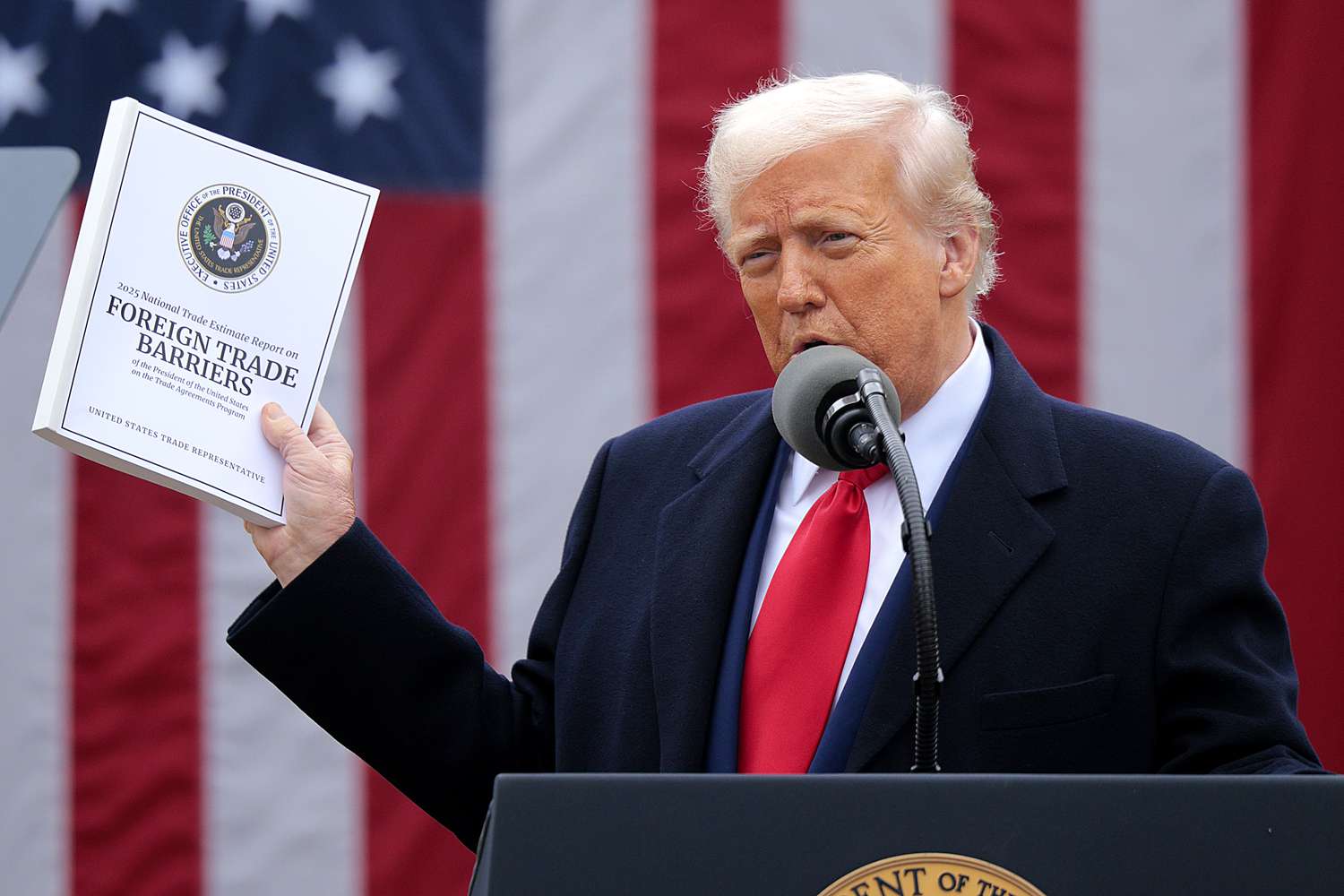## From Farm to Frustration: Iowa’s Farmers and Business Owners Cry Foul Over ‘Chaotic’ Tariffs
Picture this: a cornfield stretching as far as the eye can see, the scent of fresh-turned earth in the air. But instead of a sense of peace, there’s a palpable tension. Farmers, their livelihoods intertwined with the unpredictable world of global trade, are facing a new enemy: a “chaotic” web of tariffs that threaten their very existence. And they’re not alone. Small business owners across Iowa, the heartland of American agriculture, are feeling the pinch too. In a desperate plea for relief, these hardworking Iowans are turning to their congressional leaders, demanding an end to the trade war that’s leaving them reeling.

Profit Margins Under Pressure

The imposition of tariffs has created a significant squeeze on profit margins for small businesses across Iowa. Faced with rising costs for imported goods and materials, these businesses are caught in a difficult bind. Options are limited: absorb the increased costs, raise prices, or reduce inventory levels. Each of these choices comes with its own set of challenges and potential consequences.
Absorbing losses can erode profitability, particularly for businesses operating on thin margins. Raising prices can lead to decreased consumer demand, as customers may seek out cheaper alternatives or reduce their overall spending. Reducing inventory can limit sales opportunities and create stockouts, which can further damage customer relationships and brand reputation.
For example, a local retailer relying on imported goods may find themselves forced to increase prices, potentially priced out of the competitive market. This can lead to a decrease in sales volume, ultimately impacting the bottom line. Similarly, a manufacturer using imported components may need to absorb the increased costs, leading to reduced profitability or even losses.

Farmers Facing a Double Whammy
Falling Prices and Rising Costs
Iowa farmers are facing a perfect storm of challenges due to the imposition of tariffs. Not only are they experiencing falling prices for their crops, but they are also facing rising costs for essential inputs such as fertilizer, seeds, and fuel. This double whammy is putting immense pressure on farm profitability and threatening the economic viability of many family farms.
For instance, the global demand for corn has weakened, leading to a decline in corn prices. Simultaneously, the cost of fertilizer, a crucial input for corn production, has surged due to tariffs on imported fertilizers. This creates a scenario where farmers are earning less for their crops while paying more for the inputs necessary to produce them.

Trade Relationships at Risk
Tariffs can also damage established trade relationships, jeopardizing future market access for Iowa agricultural products. When countries impose retaliatory tariffs on American goods, it can make Iowa’s agricultural exports more expensive, reducing demand from those markets.
For example, if China, a major importer of Iowa soybeans, retaliates with tariffs on American soybeans, Iowa farmers could lose a significant portion of their export market. This can have a ripple effect throughout the entire agricultural supply chain, impacting farmers, processors, and transportation companies.
The Human Cost of Tariffs
The economic hardship caused by tariffs can have a profound impact on rural communities and family farms. Farmers may be forced to delay or cancel equipment upgrades, postponing investments that are essential for maintaining productivity and efficiency.
Tariffs can also make it more difficult for young people to take over family farms, as the economic uncertainty and reduced profitability make it less appealing to enter the agricultural sector. This can lead to a decline in the number of family farms, impacting the social fabric and cultural heritage of rural communities.
Seeking Solutions: A Call for Action
Industry Advocacy
Organizations like the American Farm Bureau Federation (AFBF) and the National Corn Growers Association (NCGA) are actively lobbying for policies that support farmers and mitigate the negative effects of tariffs. They are advocating for a swift resolution to trade disagreements and urging the government to pursue strategies that expand market opportunities for American agricultural products.
The AFBF, for example, has consistently argued that tariffs threaten the economic sustainability of farmers already facing financial challenges. They emphasize the importance of international markets for American agriculture and call for policies that promote fair trade and open access to global markets.
Legislative Pressure
Iowa’s congressional leaders also play a crucial role in addressing the concerns raised by farmers and small businesses. They can advocate for policies that provide relief from tariffs, support agricultural exports, and promote fair trade agreements.
Lawmakers can also work to ensure that any trade deals negotiated by the federal government benefit Iowa’s farmers and businesses. They can also support legislation that invests in infrastructure, research, and development, helping to strengthen the competitiveness of Iowa’s agricultural sector in the face of global challenges.
Looking Ahead
The long-term implications of tariffs for Iowa’s economy are significant. Continued trade tensions and protectionist policies can have a detrimental impact on Iowa’s agricultural sector, which is a vital part of the state’s economy.
It is essential to find sustainable solutions that promote fair trade, protect both farmers and small businesses, and ensure a prosperous future for Iowa’s economy. This requires a collaborative effort from policymakers, industry leaders, and the farming community to advocate for policies that support open markets, economic growth, and a thriving agricultural sector.
Conclusion
The pleas from Iowa’s farmers and small business owners are ringing loud and clear: the current tariff situation is unsustainable. The article paints a stark picture of the damage these trade disputes are inflicting, from squeezed margins and lost revenue to uncertainty and a chilling effect on investment. It’s a call to action, urging Iowa’s Congressional leaders to prioritize pragmatic solutions over political posturing. The message is simple, yet profound: protecting American jobs and livelihoods shouldn’t come at the expense of crippling our own agricultural and small business sectors.
The implications of this situation extend far beyond Iowa’s borders. As a nation built on agriculture and small businesses, the hardships faced by these communities resonate across the country. If the current trajectory continues, the ripple effects will be felt in every corner of the American economy. The future hinges on finding a path forward that balances national security interests with the need for fair and stable trade. It’s a delicate act, requiring leadership, compromise, and a renewed commitment to the principles of free and fair trade that have fueled American prosperity for generations.
The question remains: will our leaders heed the call and chart a course towards a more sustainable and equitable future, or will they continue to prioritize short-term political gain over the long-term health of the American economy? The answer, ultimately, will determine the fate of countless families and businesses across the nation.